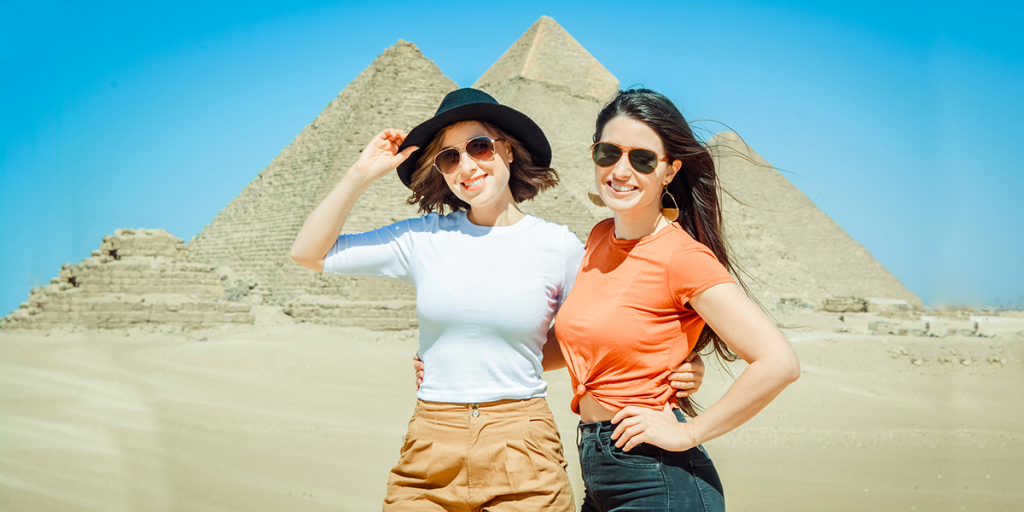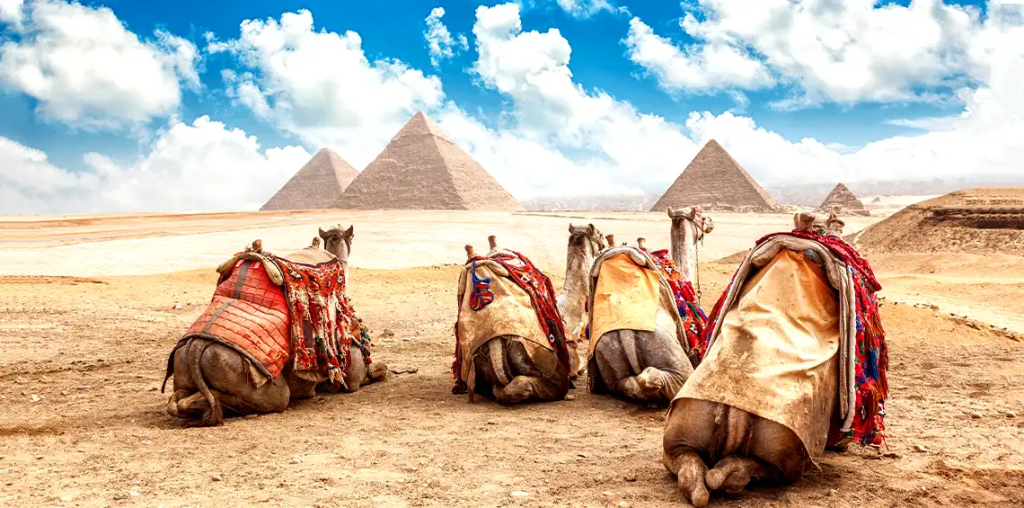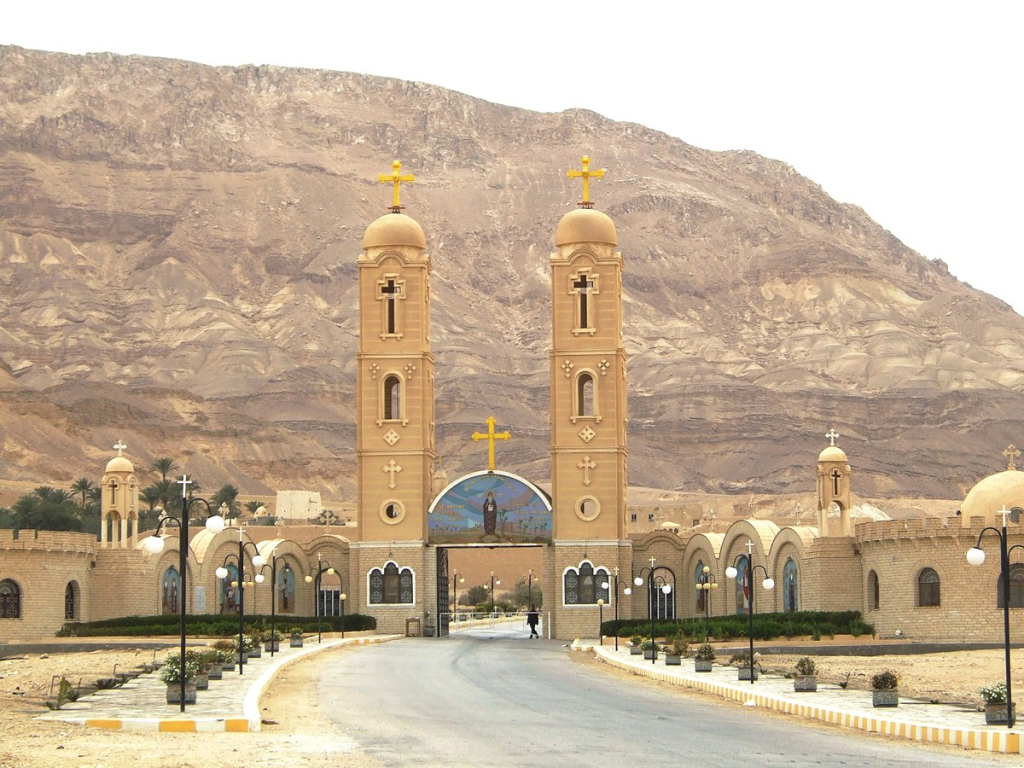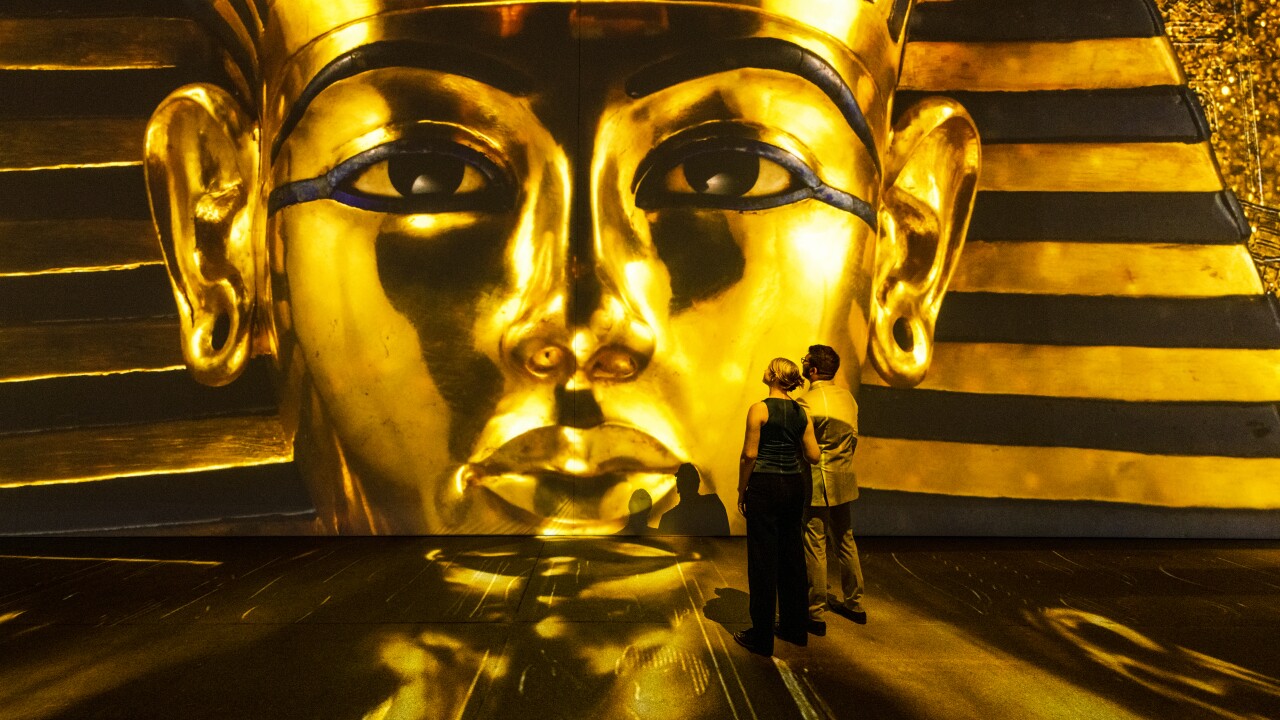
Nestled within the arid landscapes of Egypt’s Sinai Peninsula, the Moses Springs—also known as ‘Ain Musa’ or ‘Ain Hawara’—are more than just a source of water; they hold a significant place in history and spirituality. These natural springs are intertwined with the legacy of Moses and the Exodus narrative, making them a symbol of sustenance, resilience, and the divine guidance that has shaped civilizations. In this contemplative blog post, we embark on a journey to explore the historical significance, spiritual resonance, and timeless allure of the Moses Springs Egypt.
A Testament to Survival: In the heart of the rugged Sinai wilderness, the Moses Springs emerge as a testament to the life-sustaining force of water in an otherwise harsh environment. These springs have provided a lifeline for generations, quenching the thirst of travelers and pilgrims journeying through the desert.
Moses and the Exodus Connection: The Moses Springs hold a special place in the story of the Exodus as recounted in Abrahamic faiths. According to tradition, it was at these springs that Moses, guided by divine intervention, struck a rock with his staff, causing water to gush forth to quench the thirst of the Israelites during their journey.
Spiritual Reflection and Renewal: The Moses Springs have been a site of spiritual reflection and renewal for pilgrims and travelers throughout history. The profound symbolism of water as a source of life and purification adds a layer of spiritual depth to the experience of visiting these springs.
Archaeological Discoveries: Beyond their spiritual significance, the Moses Springs have also been the site of archaeological exploration. Discoveries of ancient inscriptions and artifacts provide glimpses into the historical and cultural contexts of the region.
Cultural and Interfaith Relevance: The Moses Springs are a unifying symbol for various faiths. They connect the narratives of Judaism, Christianity, and Islam, serving as a point of convergence where believers from different traditions can reflect on shared spiritual themes.
Pilgrimage and Communion: For centuries, pilgrims have made their way to the Moses Springs, seeking not only physical sustenance but also a connection with the divine. The act of drinking from these springs is often imbued with a sense of humility, gratitude, and reverence.
Nature’s Eloquent Message: The Moses Springs serve as a reminder that nature itself carries messages of hope, sustenance, and guidance. Just as water emerges from the heart of the desert, so too can moments of inspiration and spiritual insight emerge from the challenges of life.
Preserving a Sacred Heritage: Efforts to protect and preserve the Moses Springs highlight their importance as a cultural and spiritual heritage. Sustainable practices and responsible tourism ensure that future generations can continue to appreciate their significance.
An Invitation to Reflect: The Moses Springs Egypt extend an invitation to all who seek solace, inspiration, and connection with the divine. As you stand beside these natural springs, surrounded by the vast expanse of the desert, you’re invited to reflect on the timeless journey of faith, the metaphor of water as a source of life, and the threads that connect humanity across time and space.
Book Your Holiday to Moses Springs
Prepare to step into the realm of miracles, where the past and present converge in a breathtaking tapestry of beauty and wonder. Egypt, a land steeped in history, holds within its embrace the promise of a lifetime—a promise of discovery, awe-inspiring moments, and memories that will be etched into your heart forever.

4 Days Cairo and Abu Simbel Tour Package
Embark on an unforgettable 4-day tour package to Cairo and Abu Simbel, where ancient wonders and majestic temples await. Explore the iconic sites of Cairo, including the pyramids of Giza and the Egyptian Museum, before journeying to Abu Simbel to witness the breathtaking temples of Ramses II and Nefertari. With our carefully curated itinerary, knowledgeable guides, and inclusive services, this tour offers a compact yet immersive experience of Egypt’s rich history. Discover the secrets of the pharaohs, marvel at awe-inspiring architecture, and create lasting memories View Tour Details

5 Days Cairo and Alexandria Tour Package
Embark on a 5-day journey through Egypt’s most fascinating cities, Cairo and Alexandria. From the grand pyramids and ancient temples to the coastal beauty and cultural landmarks, this tour package is designed to showcase the best of both worlds. With expert guides, comfortable accommodations, and convenient transportation, you’ll have an immersive and hassle-free experience. Join us on this captivating adventure and create memories that will last a lifetime View Tour Details

6 Days Cairo, Luxor, Aswan & Abu Simbel Package
Embark on an extraordinary 6-day journey through the heart of ancient Egypt with our Cairo, Luxor, Aswan & Abu Simbel package. Begin your adventure in Cairo, where you’ll explore the iconic pyramids and delve into the treasures of the Egyptian Museum. Continue to Luxor and Aswan, where you’ll witness the grand temples along the Nile River, and conclude your tour with a visit to the awe-inspiring temples of Abu Simbel. With expert guides, comfortable accommodations, and hassle-free transportation, this package offers a comprehensive exploration of Egypt’s historic sites. Join us on this incredible journey and unlock the secrets of the pharaohs View Tour Details

7 Days Cairo, Luxor & Alexandria Tour
Experience the best of Egypt’s cultural and coastal attractions with our 7-day Cairo, Luxor & Hurghada holiday. Begin your journey in Cairo, where you’ll discover the iconic Pyramids of Giza, explore the ancient artifacts at the Egyptian Museum, and immerse yourself in the vibrant atmosphere of Egypt’s capital. Then, travel to Luxor, often referred to as the world’s greatest open-air museum, where you’ll explore magnificent temples, tombs, and archaeological sites. Finally, unwind in the idyllic beach destination of Hurghada, known for its pristine beaches and vibrant marine life. With comfortable accommodations, expert guides, and hassle-free transportation, this holiday package provides a well-rounded experience of Egypt’s rich history and natural beauty View Tour Details
Related Egypt Tours Blog

The Colored Canyon, located in the Sinai Peninsula, is a geological marvel characterized by its multicolored rock walls and narrow passages. The vibrant hues that grace the canyon’s walls are a result of mineral deposits and erosion, creating a surreal landscape that is unlike any other. Our guided tour allows you to traverse the twists and turns of the canyon, marvel at its stunning formations, and connect with the forces of nature that shaped this masterpiece View Tour Details

Monastery of Saint Paul the Anchorite
The Monastery of Saint Paul the Anchorite, also known as the “Red Monastery,” is one of Egypt’s oldest Christian monastic settlements. Situated in the Eastern Desert near the Red Sea, this remote monastery holds a legacy of devotion and spiritual solitude that spans centuries. Our guided tour offers you the opportunity to connect with the history of Christian asceticism, witness the monastery’s ancient architecture, and experience the peaceful ambiance of this sacred oasis View Tour Details

Moses Springs, also known as “Ain Musa,” is a historical and natural oasis located in the Sinai Peninsula. According to tradition, this is where the biblical figure Moses encountered a group of women watering their flocks, a significant event in his life’s journey. Our guided tour offers you the chance to experience the beauty and tranquility of the springs, connect with the stories of ancient times, and reflect in the oasis’s peaceful surroundings View Tour Details
Moses Springs Egypt FAQs
- What are the Moses Springs (Ain Musa) in Egypt? Moses Springs, also known as Ain Musa, are a group of natural springs located in the Sinai Peninsula of Egypt. They are traditionally associated with the biblical story of Moses striking a rock to bring forth water for the Israelites.
- Where are the Moses Springs located? The Moses Springs are situated near the town of St. Catherine in the southern part of the Sinai Peninsula, close to the foot of Mount Sinai.
- What is the biblical significance of the Moses Springs? According to the biblical account in the Book of Exodus, Moses struck a rock at Horeb (Mount Sinai), and water flowed from it to quench the thirst of the Israelites during their journey in the wilderness.
- Can visitors access the Moses Springs? Yes, visitors can access the Moses Springs, and they are often included as part of tours to the St. Catherine area. The springs are located within a desert landscape.
- How can visitors reach the Moses Springs? Visitors can reach the Moses Springs by car, organized tours, or local transportation from nearby towns. Guides familiar with the area can provide directions.
- Is there an entrance fee to visit the Moses Springs? There might be an entrance fee associated with visiting the Moses Springs, especially if you are part of an organized tour.
- What can visitors see at the Moses Springs? The Moses Springs consist of natural springs surrounded by a desert environment. Some springs might have pools of water, while others might provide a continuous flow.
- Is there a religious significance to visiting the Moses Springs? For many visitors, the Moses Springs hold religious significance due to their connection with the biblical story of Moses and the miracle of water provision.
- Can visitors drink from the Moses Springs? The water from the Moses Springs might be safe for drinking, but it’s advisable to consult with a local guide or authorities before consuming the water.
- Are guided tours available for the Moses Springs? Guided tours to the Moses Springs are available and recommended. Guides can provide historical and cultural context to enhance the experience.
- What is the best time to visit the Moses Springs? The best time to visit is during the cooler months of fall and spring. Summers can be extremely hot in the desert, so plan accordingly.
- Is there a dress code for visiting the Moses Springs? Modest and comfortable clothing is advised when visiting religious or natural sites in Egypt. Protect yourself from the sun with appropriate attire.
- What other attractions are near the Moses Springs? The Moses Springs are often visited as part of trips to the nearby St. Catherine’s Monastery, Mount Sinai, and other natural and historical sites in the Sinai Peninsula.
- Is photography allowed at the Moses Springs? Generally, photography is allowed at the Moses Springs, but it’s respectful to ask permission before taking photos of people or religious artifacts.
- What is the historical background of the Moses Springs? The historical background of the Moses Springs dates back to ancient times, and they have been revered by various religious and cultural groups over the centuries.
- How do the Moses Springs contribute to Egypt’s cultural and religious heritage? The Moses Springs contribute to Egypt’s cultural and religious heritage by connecting visitors to the ancient stories of Moses and the spiritual significance of water in the desert.
- Can visitors hike or explore the surrounding area of the Moses Springs? Depending on the site’s regulations and the guidance of your tour, you might have the opportunity to explore the surrounding desert landscape.
- Are there any special rituals or customs associated with visiting the Moses Springs? Some visitors might engage in prayers, reflections, or rituals at the Moses Springs as a way of connecting with the biblical story and seeking spiritual inspiration.
- How does the presence of the Moses Springs impact the local economy and tourism? The Moses Springs attract tourists interested in religious and historical sites, contributing to the local economy by supporting tourism-related businesses.
- How can visitors show respect for the sanctity of the Moses Springs? Visitors should act respectfully, follow any guidelines provided by local authorities, and be mindful of the natural environment when visiting the Moses Springs.

